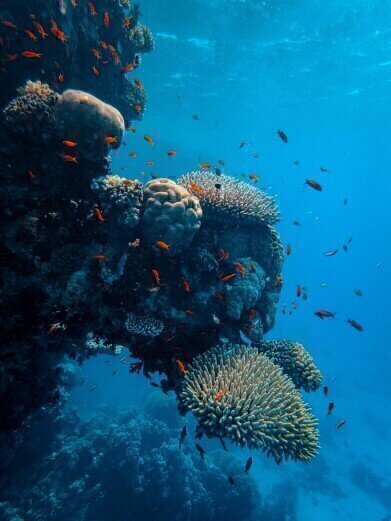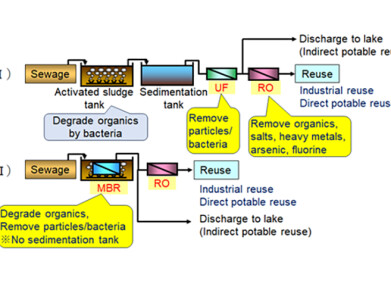Water/Wastewater
How Does Noise Pollution Affect Marine Life?
Feb 20 2016
As our knowledge and experience as a species has unfolded, we have learned to traverse great distances at high speeds, mine valuable resources from untold depths and reach remote oceanic locations with ease. However, with these innovations and abilities comes a knock-on effect on the other species with which we share this planet and these waters – noise pollution.
A few years ago, it was learned that noise pollution could affect marine life feeding habits, especially with regard to the foraging patterns of blue whales. Now, a new study published in Nature Communications indicates that the consequences could be far worse than a missed meal – those affected by noise pollution could end up becoming a meal themselves.
Damselfish in Distress
A team of scientists at the University of Exeter and the University of Bristol carried out a number of experiments on damselfish, a particular strain of species which boasts more than several hundred varieties and is found mostly in tropical habitats. Conducting investigations both in a controlled laboratory situation and in the wild, the team found that damselfish were intensely affected by sonar interference when it came to avoiding predators.
Regardless of whether the noise was produced by a real motorboat overhead (as in the wild) or by a sound recording (as in the laboratory), the damselfish were far more likely to succumb to the jaws of a predator than in tranquillity. Their most likely predator in the wild is the dusky dottyback, which was recently found to be something of a chameleon in the marine kingdom.
“The combination of stress and poor responses to strikes by predators is why these fish become such easy prey,” explained Andy Radford, who is a co-author on the study.
Noise Pollution by the Numbers
- Sound travels five times more quickly when underwater than it does through air.
- Noise pollution is most commonly found in the most densely packed habitats – for example, shallow coral reefs are home to over 25% of the ocean’s biodiversity, despite the fact that they only make up significantly less than 1% of its floor surface area.
- The Australian government estimate that half a million motorboats will traverse the Great Barrier Reef by 2040.
- Fish subjected to noise pollution consume as much as a third more oxygen than normal, indicating their elevated stress levels.
- Damselfish disorientated by noise pollution were 200% more likely to be eaten by a predator and six times less likely to even attempt escape.
Not Just Sea Life that is Under Threat
Noise pollution doesn’t just affect life under the waves, either. A recent study by the University of Sheffield found that noise pollution could threaten the lives of baby birds and interrupt breeding patterns. This is largely because parents can’t hear the distressed chirping of their young, leading to neglect and starvation.
Meanwhile, some species of bat do not depend on sonar, as many people think, but on a highly-sharpened sense of hearing. This allows them to hear the slightest rustling of prey in amongst the undergrowth and pinpoint their location – noise pollution throws a sizable spanner into those works. As such, the din we insist on making could be having a disastrous effect on our fellow Earth dwellers without us even knowing it.
Events
Apr 22 2024 Hannover, Germany
Apr 23 2024 Kuala Lumpur, Malaysia
Apr 24 2024 Sao Paulo, Brasil
May 05 2024 Seville, Spain
May 13 2024 Munich, Germany













